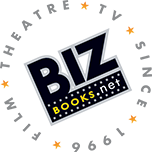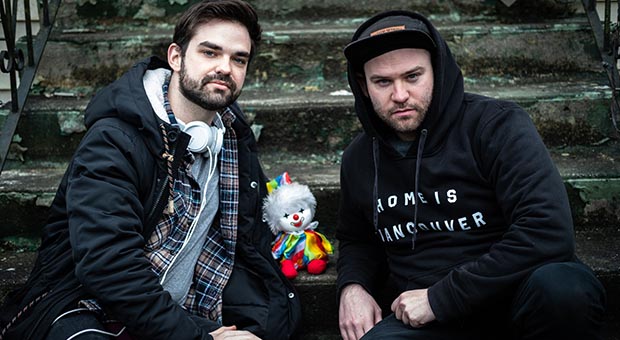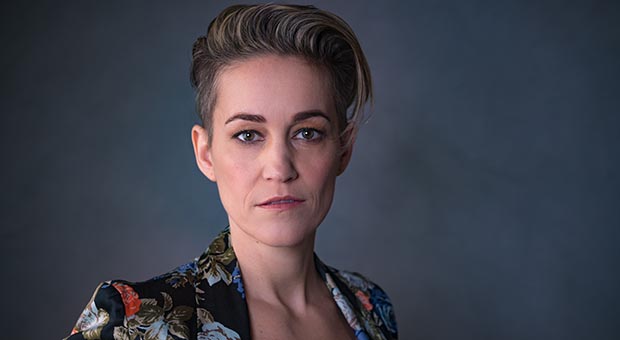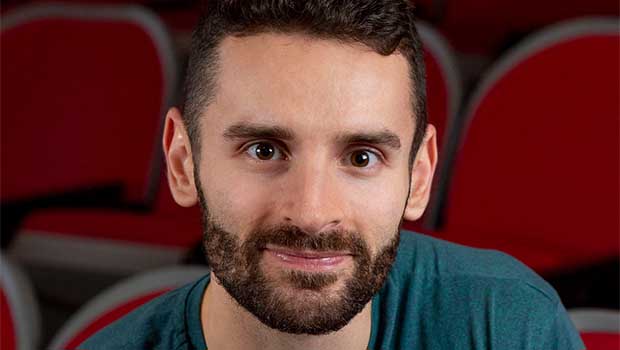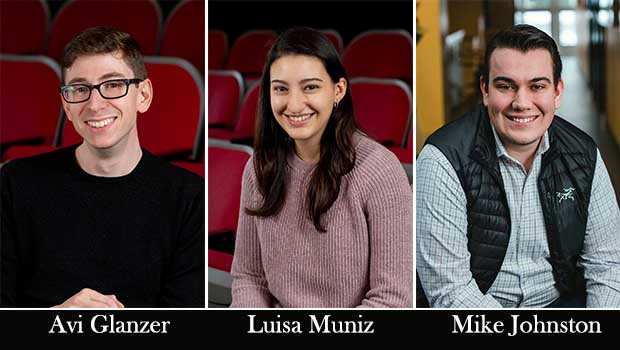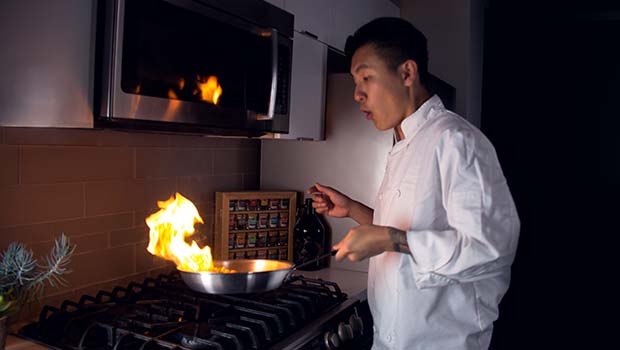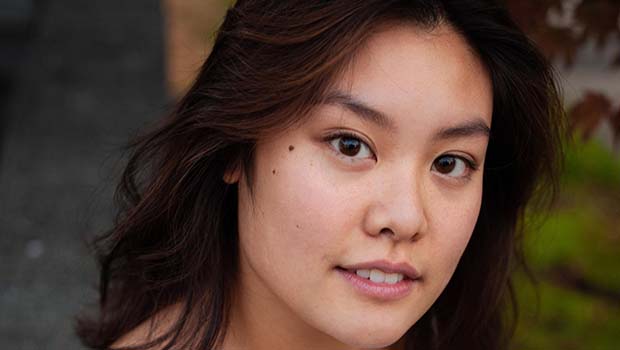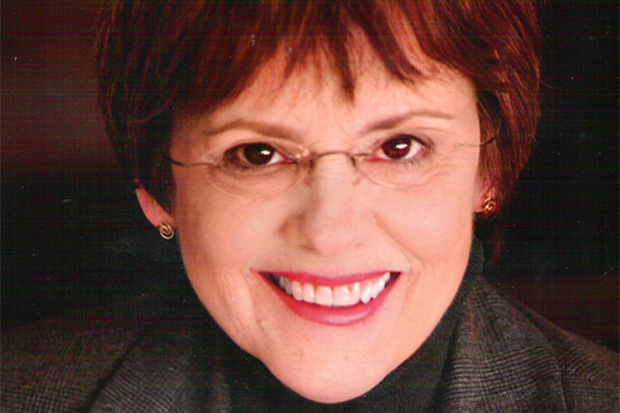
12 Nov The Biz Interview: Linda Darlow – Author of “AuditionCraft for Film & TV”
Linda Darlow has over 30 years of experience in the performance and teaching of acting. With her newest book, AuditionCraft for Film & TV, she has taken her experiences and insights to print form to give actors specific techniques that can assist them in the audition process.
We spoke with Linda to find out more about the book, her process in creating it, and the various benefits it offers to the acting community at large.
Please tell us a little bit about AuditionCraft for Film & TV and what actors can expect to gain from reading it.
AuditionCraft is a “how to” manual, using guidelines that any actor can follow in preparing for an on-camera audition. It covers “the craft” – giving the actor specific tools to use when working on the material for an audition; “the mastery” – laying out a technique for handling the logistics of auditioning: from preparing at home, to getting in the room, to what to do when it’s over; and “the reality” – explaining what it will take to have not only a successful but also a satisfying and rewarding acting career. In this book, as in my classes, my goal is to help actors see auditioning as a necessary skill and to give actors the tools to develop that skill as part of their craft. I want actors to be able to approach auditions with confidence, eagerness and a sense of mastery that will allow them to not only do their best, but also allow them to enjoy the process.
What can you share about your creative process in developing the book from start to finish?
I’ve been teaching Audition Technique classes and working as an actress myself here in Vancouver for 30 years, so I’d have to say the development process started 30 years ago! I personally hated the audition process at the time and set out to find a way to get passed my fear and loathing and learn to enjoy them. So I designed a technique based on the “guideposts” from Michael Shurtleff’s Audition book, re-organized the material to specifically suit Film & TV auditions, and added handling the logistics of working on-camera. Then I tested the technique in my own auditions – it worked! I not only started enjoying auditions, but I started booking more jobs. I’ve been teaching the technique ever since, adding to the technique from my own personal acting experiences over the years and coming up with exercises that would be beneficial for film actors.
It wasn’t until a couple of years ago that it started to bother me that my classes were “experiential” and students were responsible for taking their own notes – or not. It bothered me that some students were better note-takers than others, and it bothered me that I had to keep explaining the same things because I didn’t have written material to hand out for students to refer to and study on their own. After hearing myself say over and over in my classes, “I wish I had good notes to give you”, I finally just decided to write it all down!
So it took 30 years to develop the contents, but it only took 3 months to write it all down. I just had to write down what I’ve been saying in class all these years, organize what I’ve learned about how this business works, and decide which aspects I thought were the most important to cover. It seemed to flow easily and once I got started, it became an obsession to get it finished.
It also helped to have a limited window of opportunity to get it done, since I started it while on a three-month hiatus between two seasons of dialect coaching on the TV Series, Fringe!

What are the most common mistakes that actors make in the audition process?
Oh, there are quite a few, so I will only give you the short list here:
— Not taking charge of the audition room and giving their power away.
— Worrying too much about getting the words “right”.
— Not making strong choices about the scene and committing 100% to them.
— Not listening and really hearing “the reader” in the scene.
— Not knowing how to manage “nerves”.
Just to name a few…
How did you get started in the acting industry to begin with and how has it changed the most since that time?
I knew in high school that I wanted to be an actress. At that time, Patty Duke had her own TV show — we were the same age. I felt like I was missing the boat, I just wanted to get started in the professional business, but my father insisted that I go to college first and as a result, I have a BA in Theatre from Hofstra University in New York. I’d done lots of theatre and taken lots of classes in N.Y. but I wanted to do film & TV, so I moved to L.A. It was there that I worked as a commercial casting director, started teaching commercial audition technique and fell in love with teaching. After I left casting, I continued teaching and began acting in commercials mostly. I also took a workshop called “The Mastery of Acting”. It had such a huge impact on me that I wound up running The Actors Institute, leading that workshop and teaching other classes there. “The Mastery” Workshop is actually what brought me to Vancouver – we would come up to lead the program and then I moved here in 1986. That’s when the Film Industry moved here as well, and I started teaching my own technique and acting full-time. I still to this day, also lead “The Performers’ Mastery” here.
I remember when there was no such thing as a “video camera” and all auditions were live, but then I’m old enough to remember not having TV and listening to the radio! So there you go! When I was in L.A. in the ‘70s, commercial auditions were all on-camera, but film & TV auditions were still live for the most part, then slowly but surely they started taping film & TV auditions as well. I always wondered why it took them so long to get around to it! I also remember when there was no such thing as a film school, or film department in a school. It seems like it has taken longer than it should have for training in film to be considered a legitimate course of study. It seems to be catching up now.
When I arrived in Vancouver, there were only two other acting teachers here and I was the only one specializing in film acting — now there are dozens! There were four or five agencies and three or four casting directors – there are so many more now! Let’s hope the business keeps coming!
What have been some of your career highlights so far?
For one thing, it was really difficult in L.A. to get an audition even with a good agent. So coming to Vancouver at the right time, even getting auditions and starting to book roles was a highlight! In the ‘90’s here, it was easier to book really good roles, so I’m proud to say my roles in Immediate Family and The Accused were highlights as well. Booking recurring roles on series is always great, especially when it’s a show like Chris Haddock’s DaVinci’s City Hall which I loved. Also, receiving the 2010 UBCP “Sam Payne Award” – for humanity, integrity and the encouragement of new talent, was a major highlight. It meant a great deal to be acknowledged in that way. Being nominated for a Leo Award and a UBCP Best Actress Award was pretty awesome too! But the biggest highlight for me has been leading The Performers’ Mastery and knowing that I’ve made a small contribution to actors not only making huge progress in their careers, but in their lives as well. I’m blessed to have that experience at least three times a year!
What were the biggest challenges for you in creating this book and how did you deal with them?
I’m a pretty opinionated person and at times I have a very negative view of how this business works, but I didn’t want the book to reflect any of that, so it was a challenge to stick to the facts of what I know to be true about the business; and be positive, passionate, supportive and inspirational for anyone reading it. But I also wanted to make readers aware of the pitfalls, so it was tricky to find a balance in that. I hope I achieved that – we’ll see! I also found it challenging to explain a process in writing that is so experiential in nature, which is why I keep stressing the need to take classes throughout the book. I don’t think you can benefit much from just reading about this process without practicing the elements! So my hope is that teachers will use this book to exercise their students and aspiring actors will realize the need to study and learn auditioning skills.
Writing this book was the easy part! Getting it published was the biggest challenge! It’s been a huge learning curve for me. After some research, I decided to “self-publish” with a vanity publisher, and I had to decide who would be the best for me. Not being a “writer” by nature, I also had to learn about the editing process which is quite involved; being computer illiterate didn’t help either! At a certain point the last thing I wanted to do was read this book again – but read it again I had to do! It’s taken me 7 months to get the publishing handled which is longer than it took me to actually write it, but it’s done and I’m proud of the finished product.
Are there any specific books or authors that have been influential to you so far in your creative journey?
Oh my, yes! My Dad was an actor, so I grew up with lots of acting books and books of plays all around me. In fact, I still remember the very first acting book I read, which was Acting: the First Six Lessons by Richard Boleslavsky. It had a huge impact on my understanding of the acting process. Then came all of the Constantin Stanislavski books, but I haven’t looked at those in years. I’m sure I’ve forgotten a few that I’ve read over these many years, but the most recent, memorable and influential ones for me have been David Mamet’s True and False, and The Practical Handbook for Actors, the book written by his students .
Of course, the most influential book that has been my acting bible for 30 years is Michael Shurtleff’s Audition. I actually attribute that book with being the reason I have had the success in acting and teaching that I have had. His book is the reason I wrote my book! Audition, brilliant as it is, was written in 1976 and was all about the stage. I felt the need to update his wisdom and knowledge to include auditioning for film & TV because the logistics of the process change dramatically (pardon the pun) when there is a camera involved. The whole nature and tone of the film business is so different from that of the theatre and I wanted to address that as well. I know I have sufficiently acknowledged Michael Shurtleff’s work in my book, but I like to think of his bible as “The Old Testament” and mine as “The New Testament” — if you will.
Outside of AuditionCraft, what other projects are you working on these days that you would like to highlight?
At the moment, my current job as Dialect Coach on the new TV Series, Almost Human, is taking up most of my time. It’s pretty much full-time every day and we’ve just started working six days a week! We’re doing 12 episodes, which takes us to the end of the year and then we will see if the show is picked up or not. Once I’ve recovered from the experience of publishing this book, I do have thoughts of doing another book on commercial auditioning (which is very different from film & TV) and maybe one on being a working actor! If the show doesn’t get picked up, I will be quite happy to get back to teaching classes, coaching and devoting more time to marketing my book, which I’ve had to put aside for now. I still am co- leading The Performer’s Mastery with Henry Mah a few times a year while I’m working on the show ‘cause being actively engaged in helping people change their lives for the better and watching the results is my favorite project of all!
